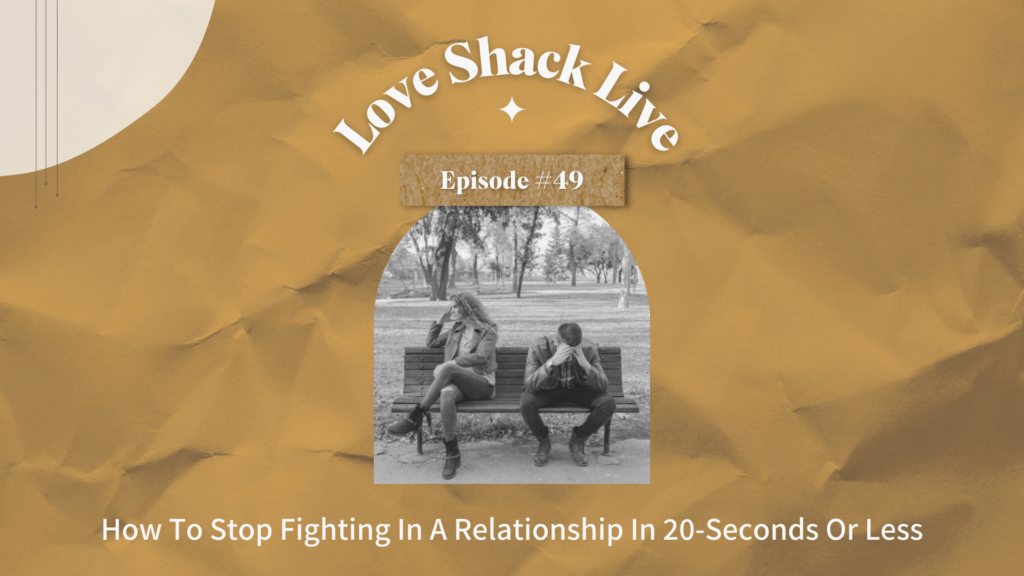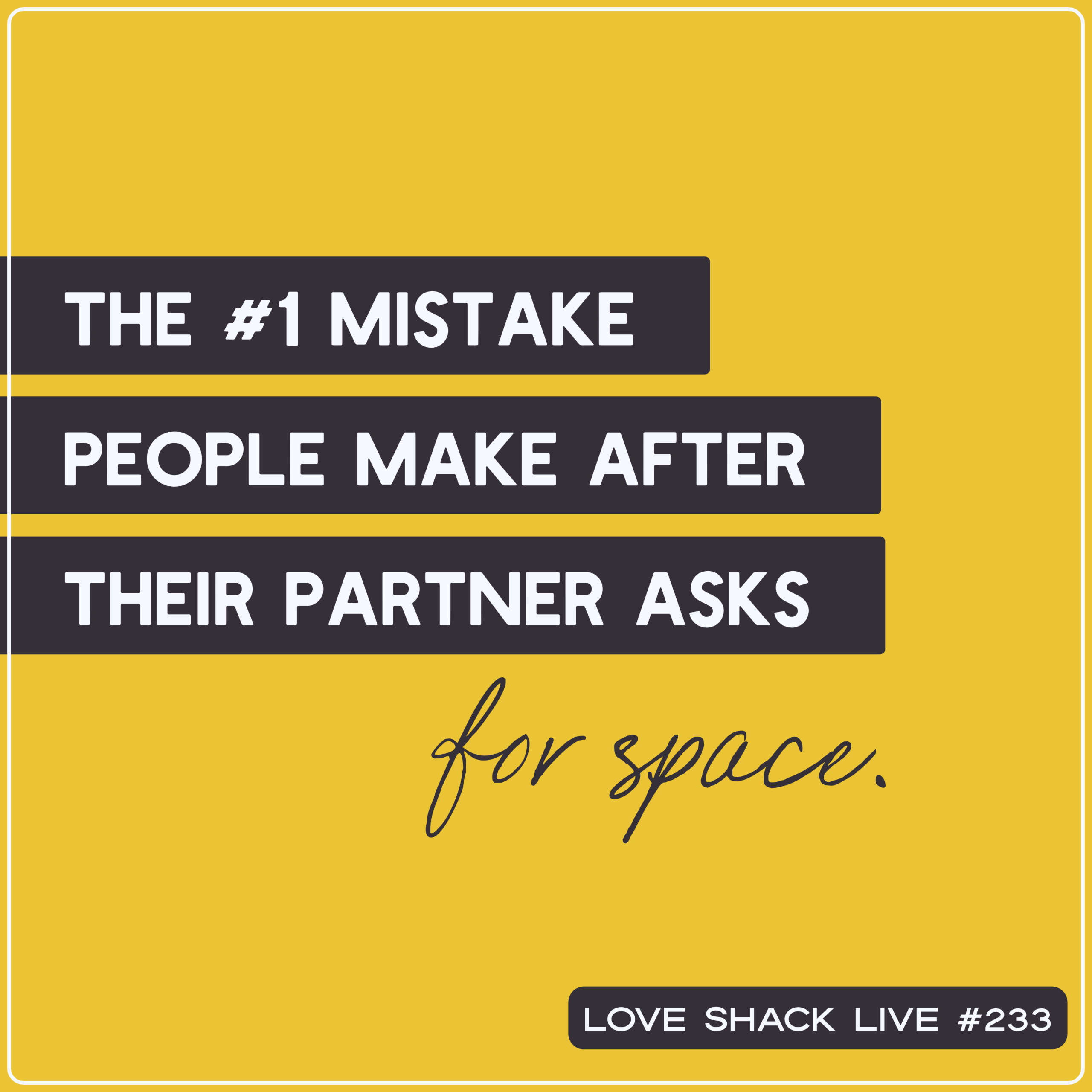
Do you feel like all you and your partner do is fight with each other? It probably goes something like this: you go round and round having the same argument, and instead of resolving anything, both partners just feel crappy and lonely.
Either your spouse said something that really hurt your feelings or you did something to hurt theirs. And the thing is…the aftermath of regret is very often more painful than the fight itself.
Listen, it’s obvious to most of us that fighting is causing our relationships to self-destruct, AND at the same time we feel like it’s SO hard to stop doing it. Especially when we don’t know what else to do when we are feeling like something needs to change. Is there really a way to say what you need to say and NOT fight? Yes, there is!
And this week in the Love Shack we’re going to teach you how. It’s actually very simple, as crazy as that may sound. But without the knowledge, we will continue to do what we know.
So how can you stop fighting in your marriage?
Here are some of the tips I share with my clients:
- Try to communicate with each other in a constructive way. Try to use “I” statements instead of “you” statements. For example, say “I feel hurt when you…” instead of “You always…”
- Avoid name-calling, cursing, and yelling.
- Take a break if things get too heated. Come back to the conversation when both of you have had a chance to calm down. If you have an anxious attachment style, this can be difficult, I know. Learn more about attachment styles here. But, it’s the best thing you can do in this situation because nothing will get resolved when you and your partner are in a heated space.
- Listen to what your partner has to say and try to really understand their perspective. Remember: understanding doesn’t equal agreeing. This leads me to my next point…
- Agree to disagree sometimes. You don’t have to agree with your partner on everything.
- Sometimes we need professional help if we find that we are struggling to stop fighting. If you don’t have the tools and skills to navigate relationships in a better way, it sometimes can become impossible to move past certain issues. Does this sound like you? A great place to start is to watch my brand new on-demand free workshop here.
Many people struggle with their marriages and are looking for ways to improve them.
Are you here because you want to know how to stop fighting in your relationship? You’re not alone. We talked all about this in this episode of Love Shack Live. (You can listen to the whole thing above!)
We covered things like:
- How to begin a difficult conversation (hint: it’s NOT “Hey, we need to talk.”)
- The 3 basic things we are all fighting for regardless of the words that are coming out of our mouths.
- How to understand when you need to speak up, and when you need to keep your mouth shut.
- And the number 1 thing YOU can do right now that will not only stop the fighting but also avoid the feelings of regret that usually come along with saying things we don’t mean to say.
Fighting in a marriage is never a good thing. It can lead to resentment, bitterness, and even divorce.
But, there’s good news. You’re reading this post, so I already know you are what I call the “Brave Heart” in your relationship. After working with hundreds of clients, I KNOW that one partner can absolutely change a relationship and you being right here right now means you’re looking for ways to learn and change.
Here are a few more tips that might help…
Communicate openly and honestly. This is the most important thing you can do. If you’re not honest with each other, things will only get worse.
Try not to bring up old arguments. Sometimes when we are in the middle of an argument, we can find ourselves piling on old feelings of resentment or past arguments because we’re just reaching for all the things that bother us. But, if something is on your mind, it’s best to talk about it when it happens, not weeks or months later. I am a big proponent of not wallowing in or dredging up the past. Focusing on the present is much more productive when it comes to having the relationship we are wanting. Because it allows you and your partner to co-create a relationship you’re both happy with together, instead of beating yourselves up (and each other) for past mistakes. Doesn’t that sound better?
And, last, don’t ignore your spouse’s feelings. This can be especially hard if you have an avoidant attachment style, I know. But, if your spouse is upset about something, take the time to listen and understand what they’re feeling, even if it might hurt to hear if you are the person who caused the pain.
If you’re serious about wanting to stop the fighting, these are some basic steps that you can take. It’s not always easy, but I promise, taking these steps is worth it.
If you want to learn how to stop fighting in your marriage without giving up on each other, remember these tips: 1) Communicate openly and honestly; 2) Don’t try to win an argument; 3) Take a break if things get too heated. If this isn’t enough or if you need more help, consider taking my free on-demand workshop, or scheduling a session with me. I’m here to help you in any way that I can.
Links mentioned in show:
- Download the worksheet we talked all about on this episode. Learn how to stop a fight in 20-seconds or less? Get the cheatsheet here. stacibartley.com/stopfight
- Relationship Check-up – tired of re-hashing your issues with your partner without making progress? Schedule your check-up today!
- Get on the fun list here.
- Check out our Love Shack Live Playlist for all the songs we play on the show.




